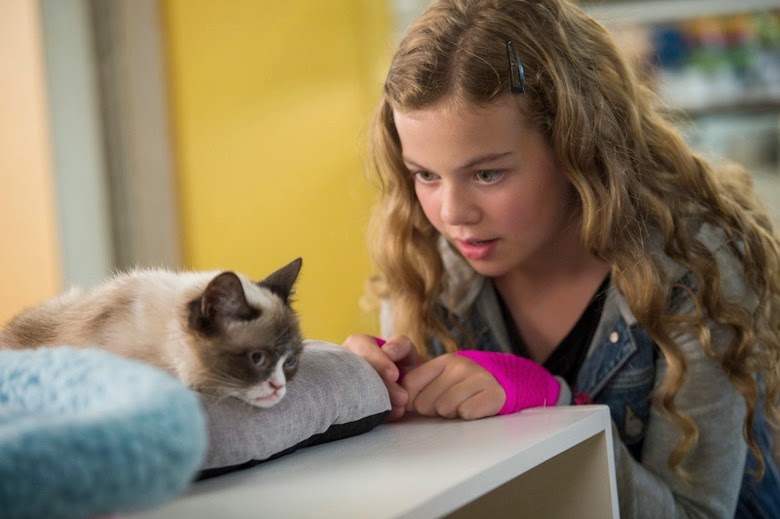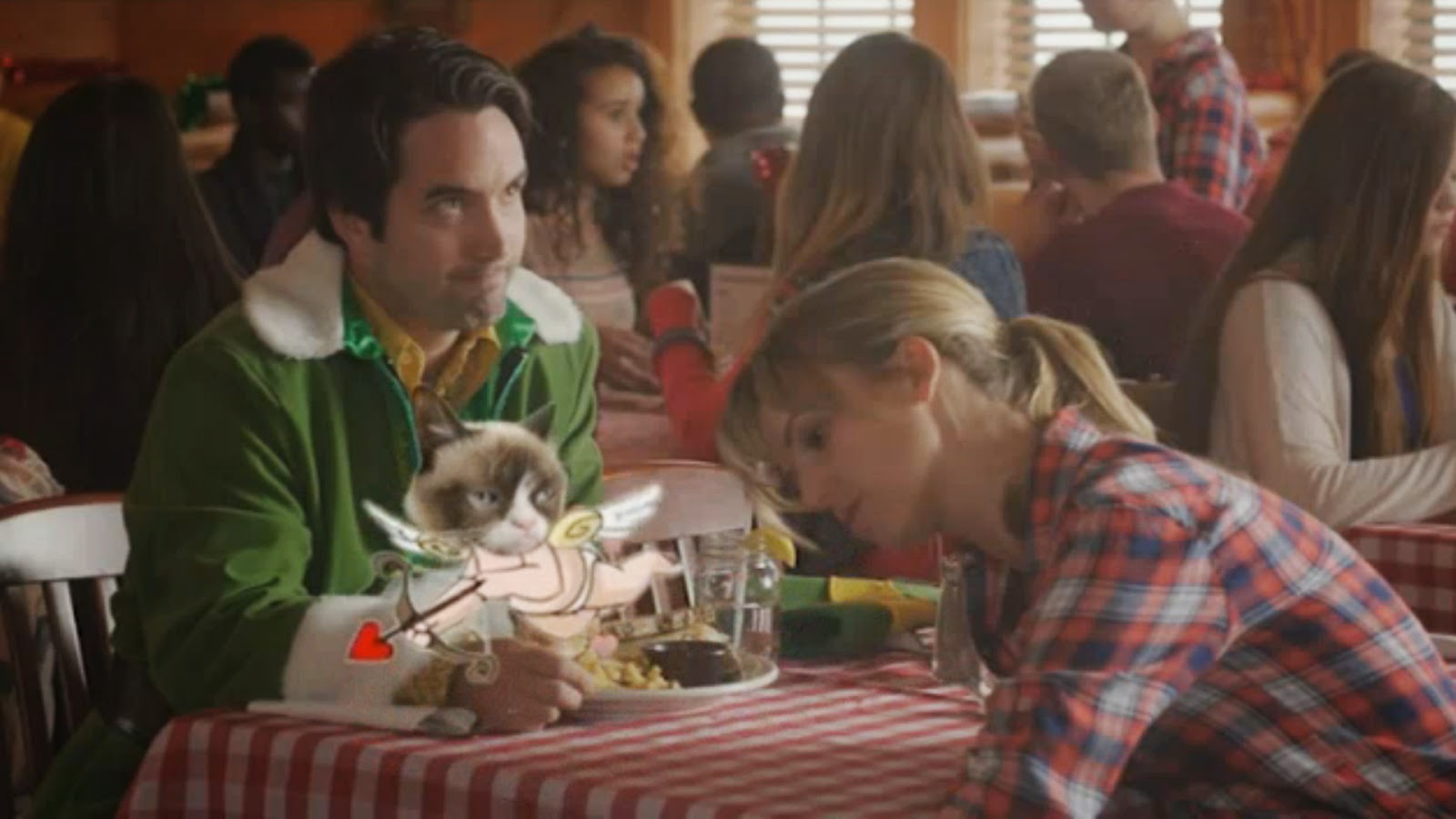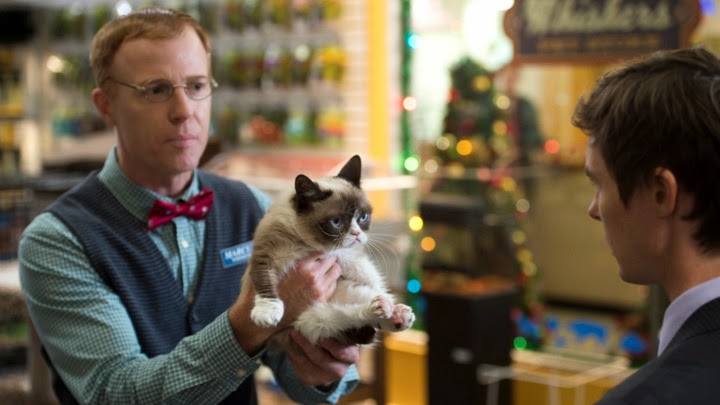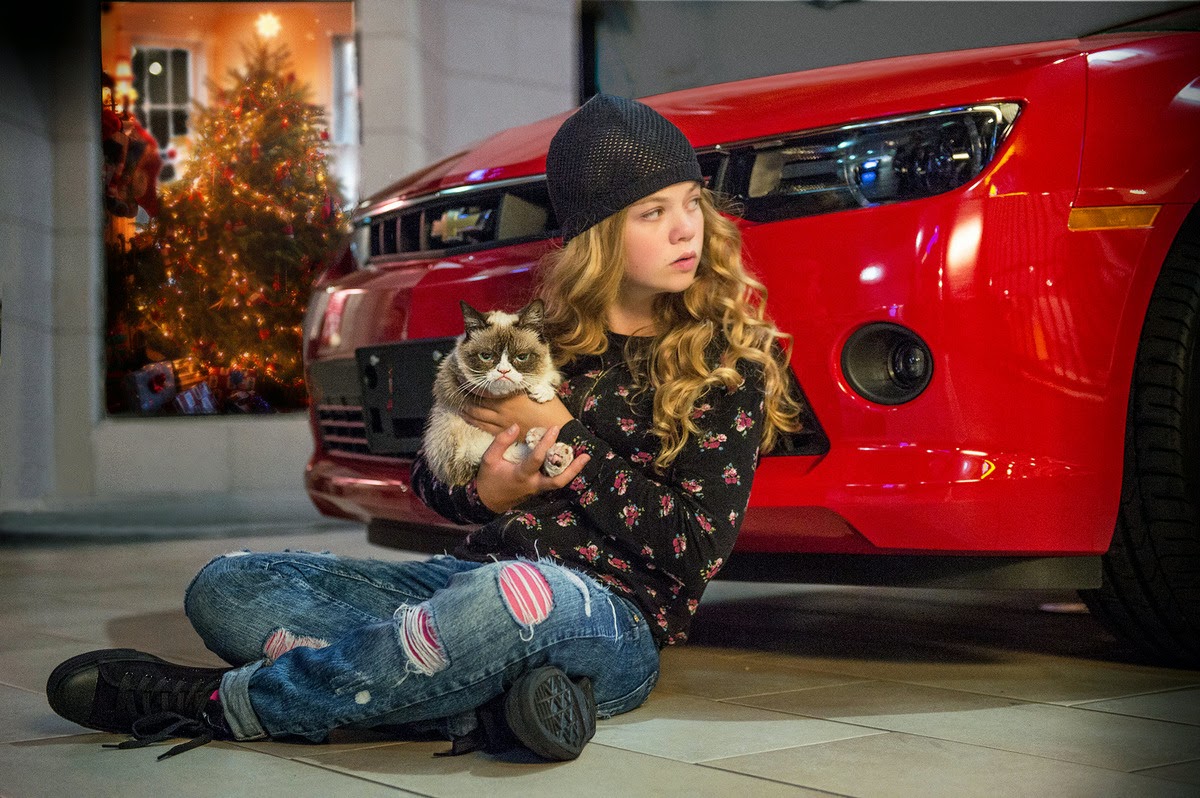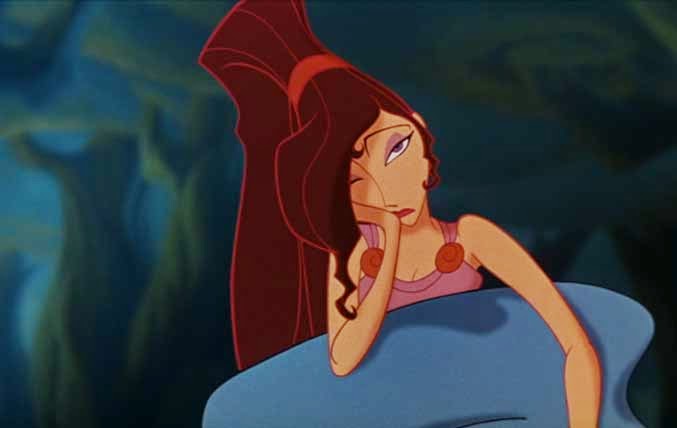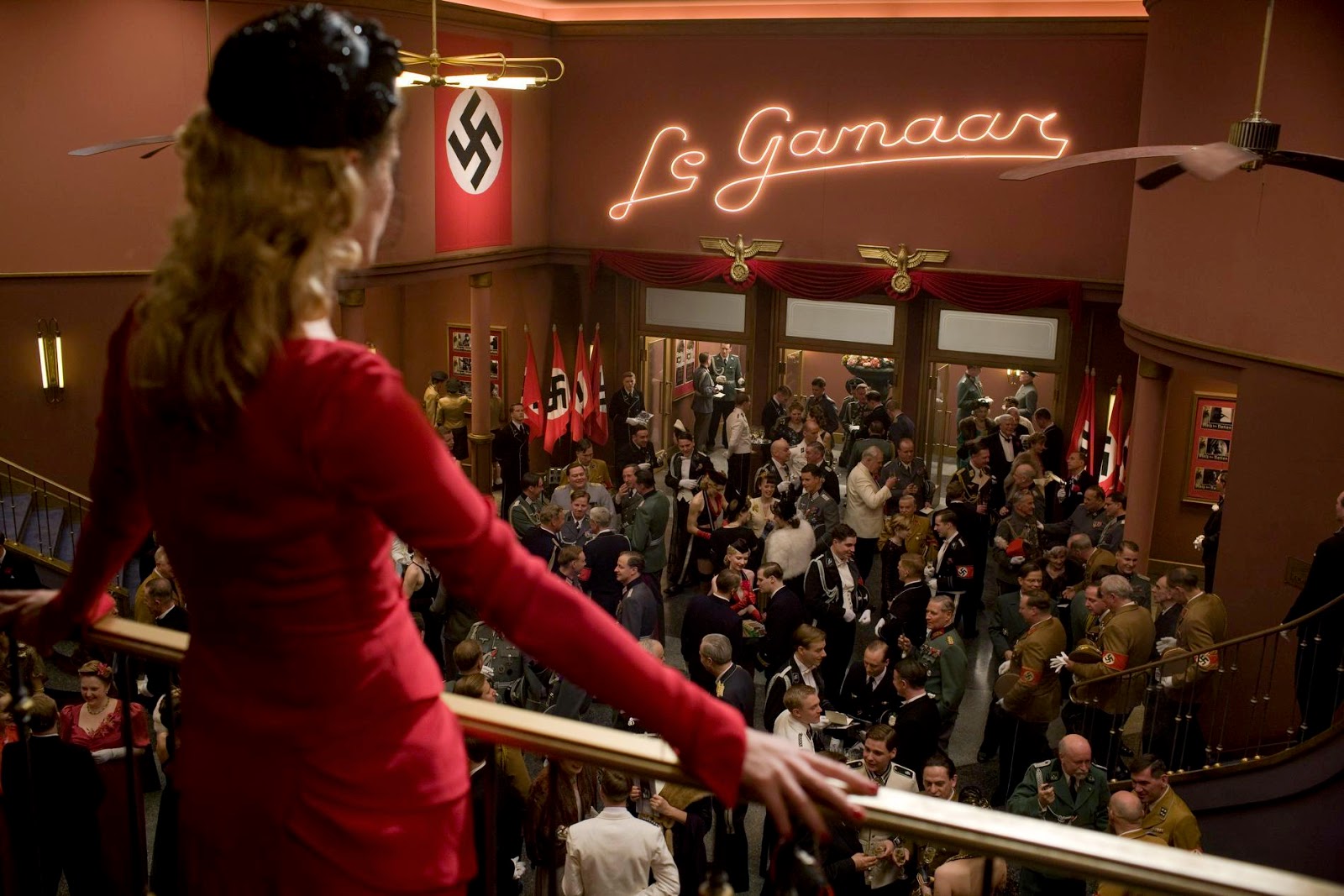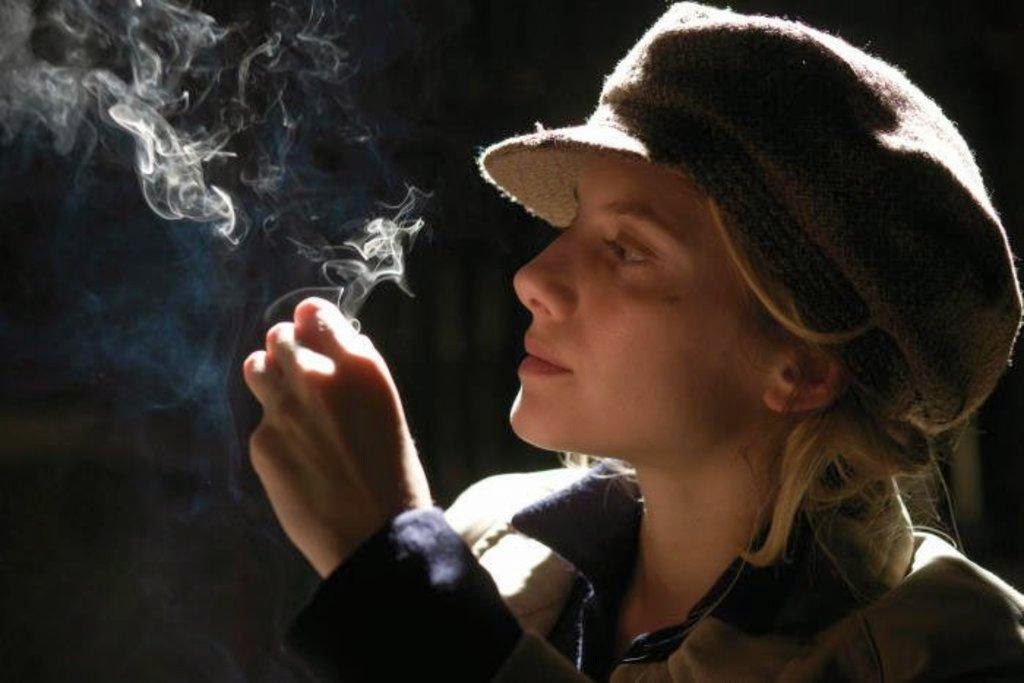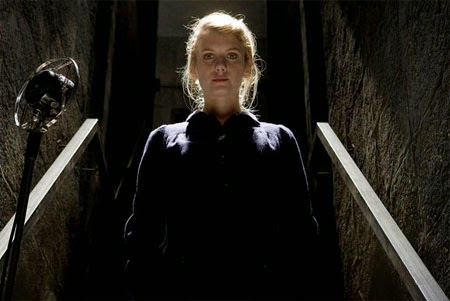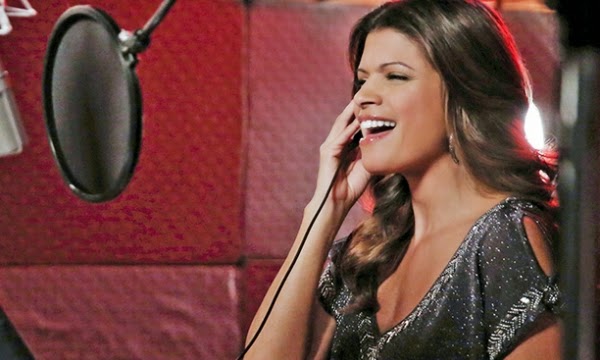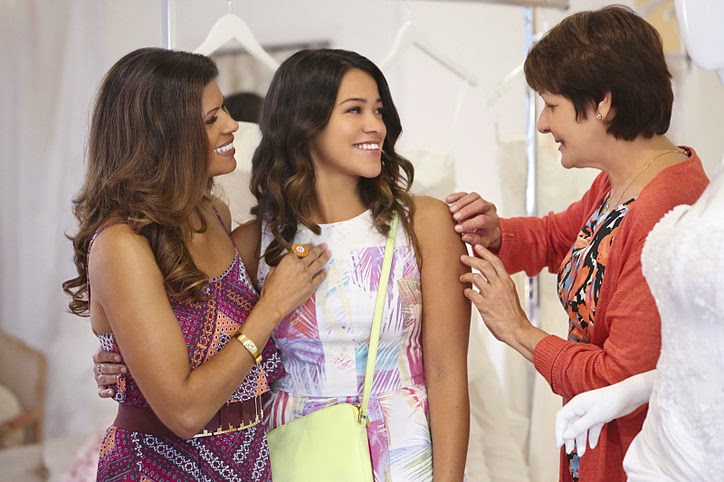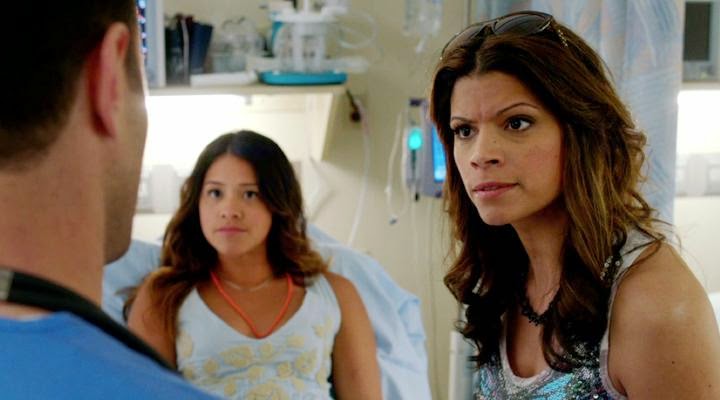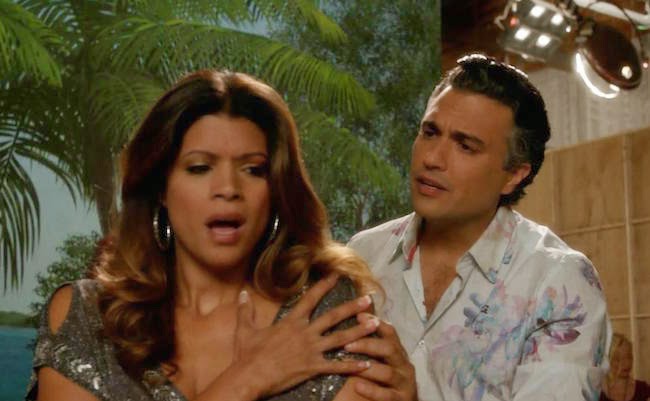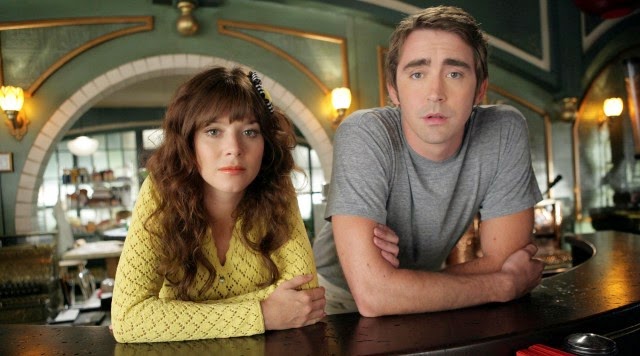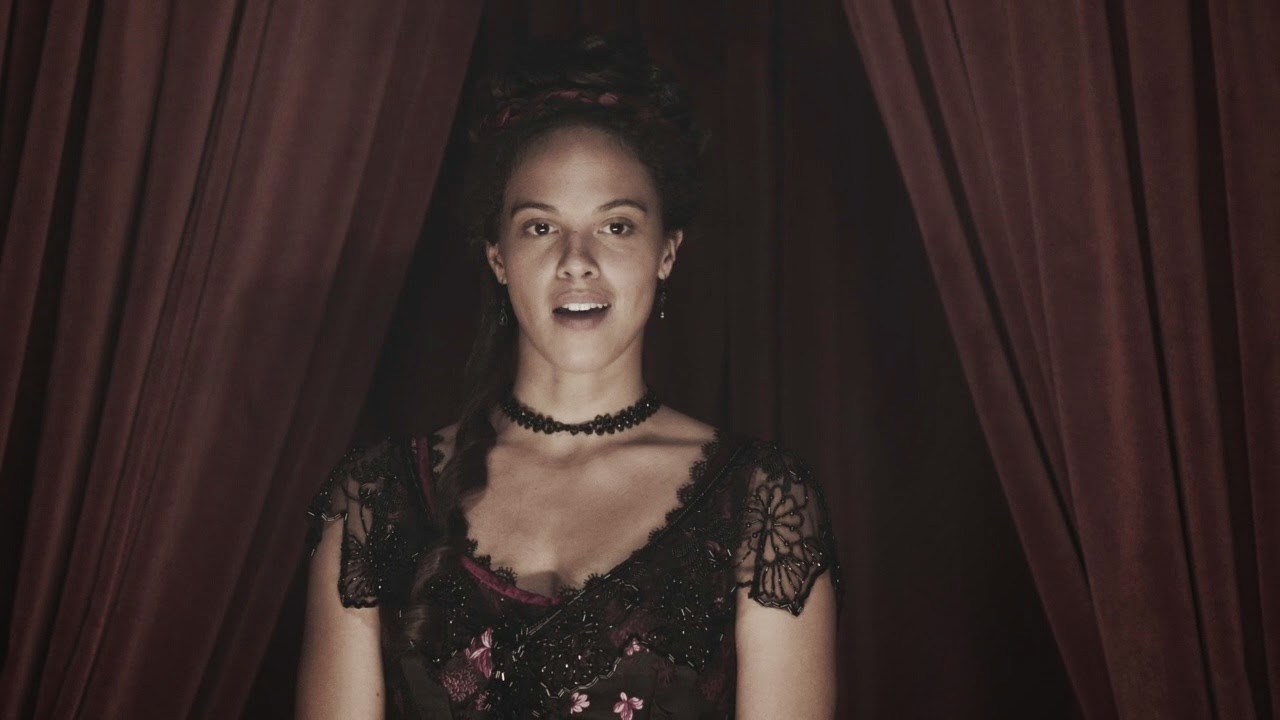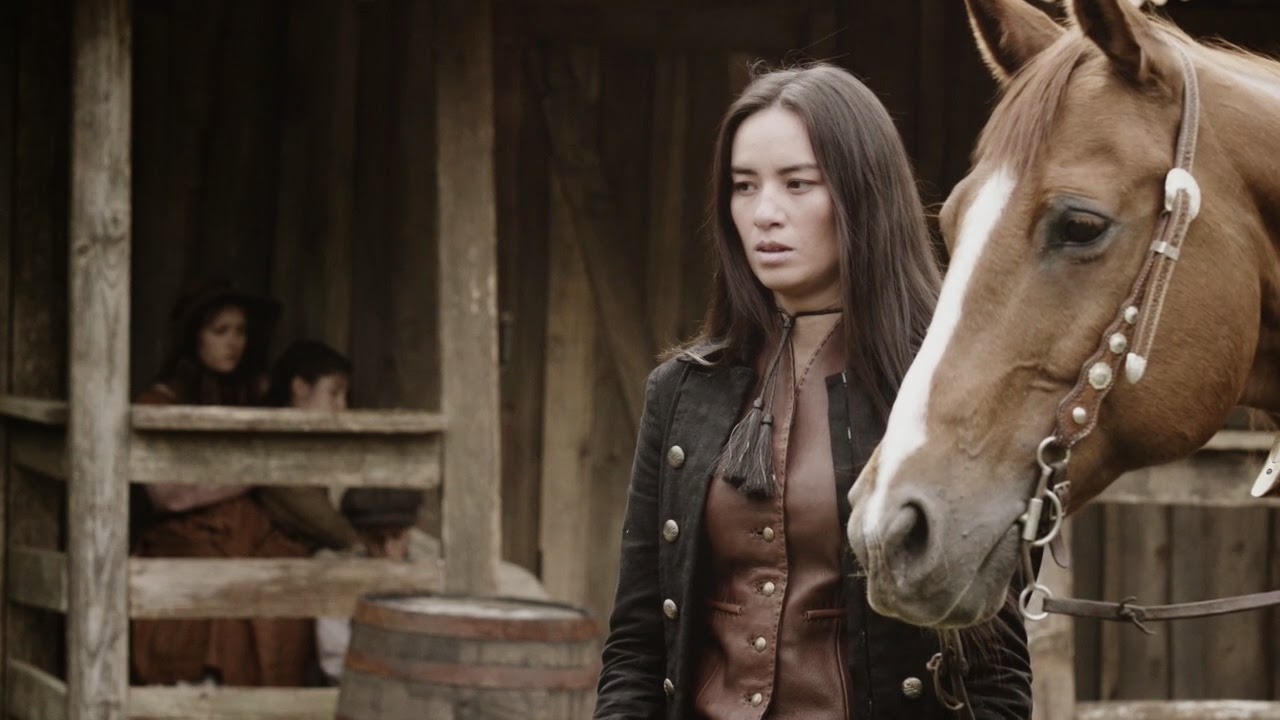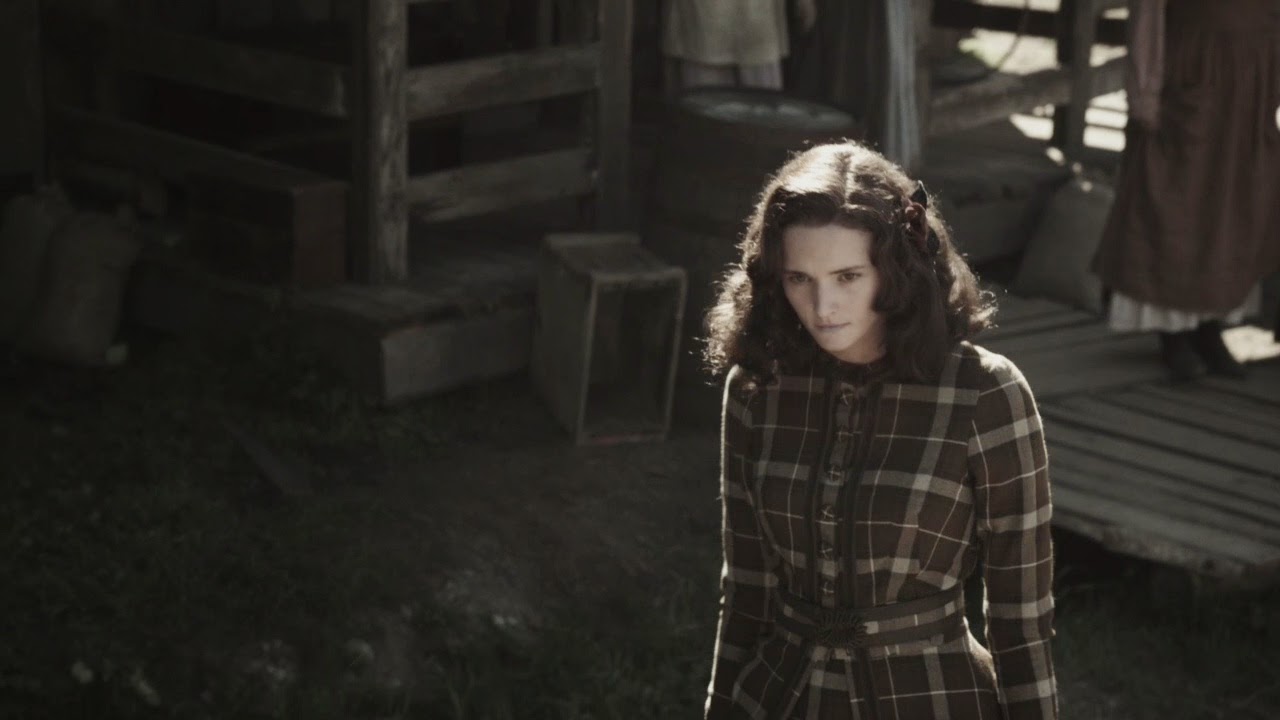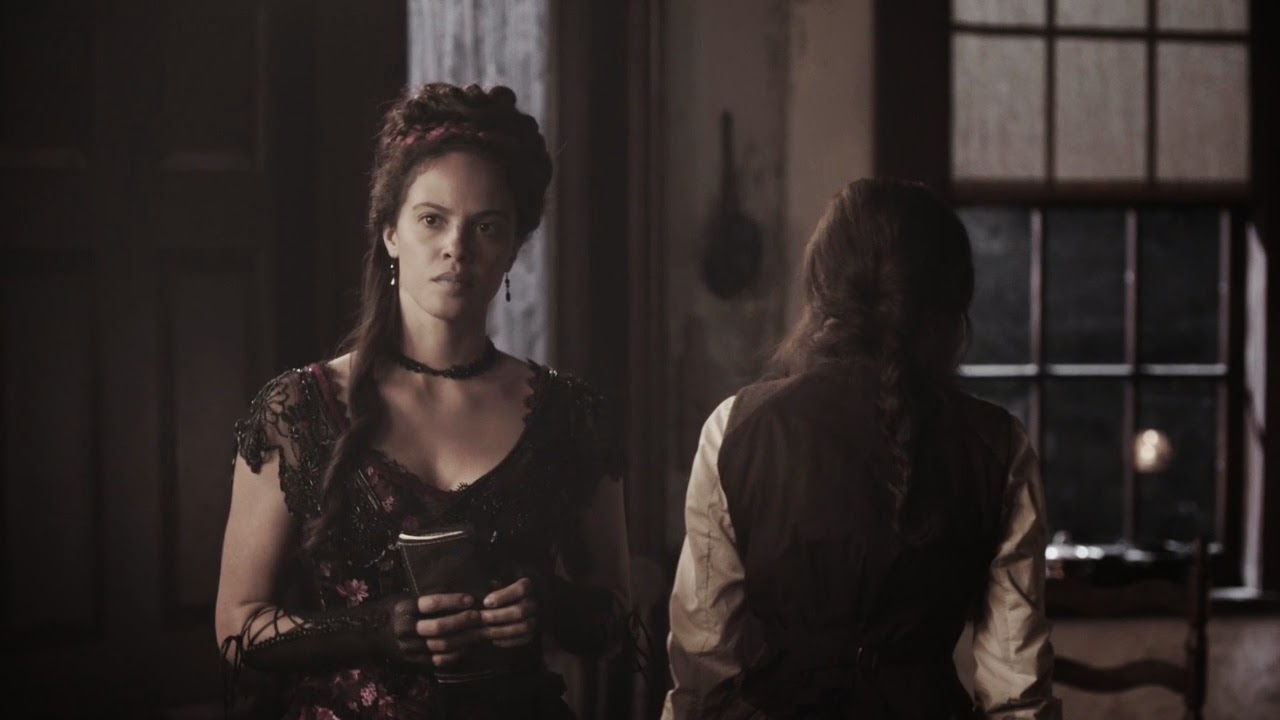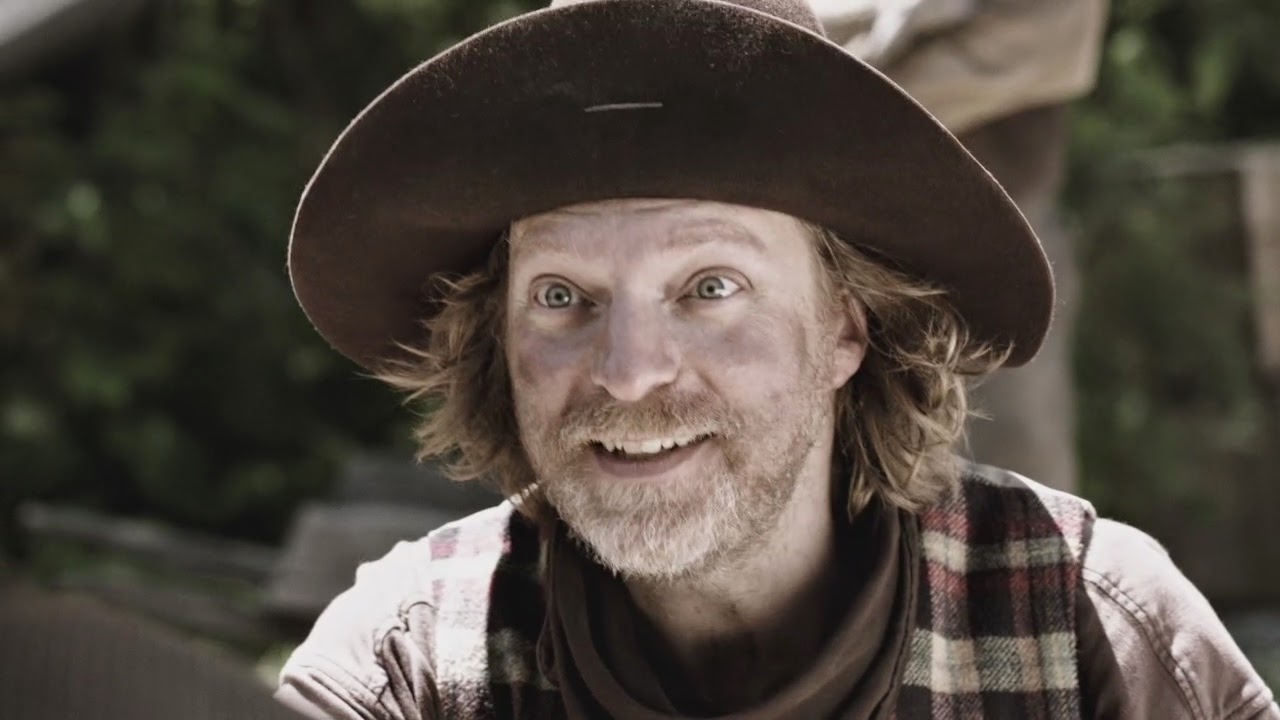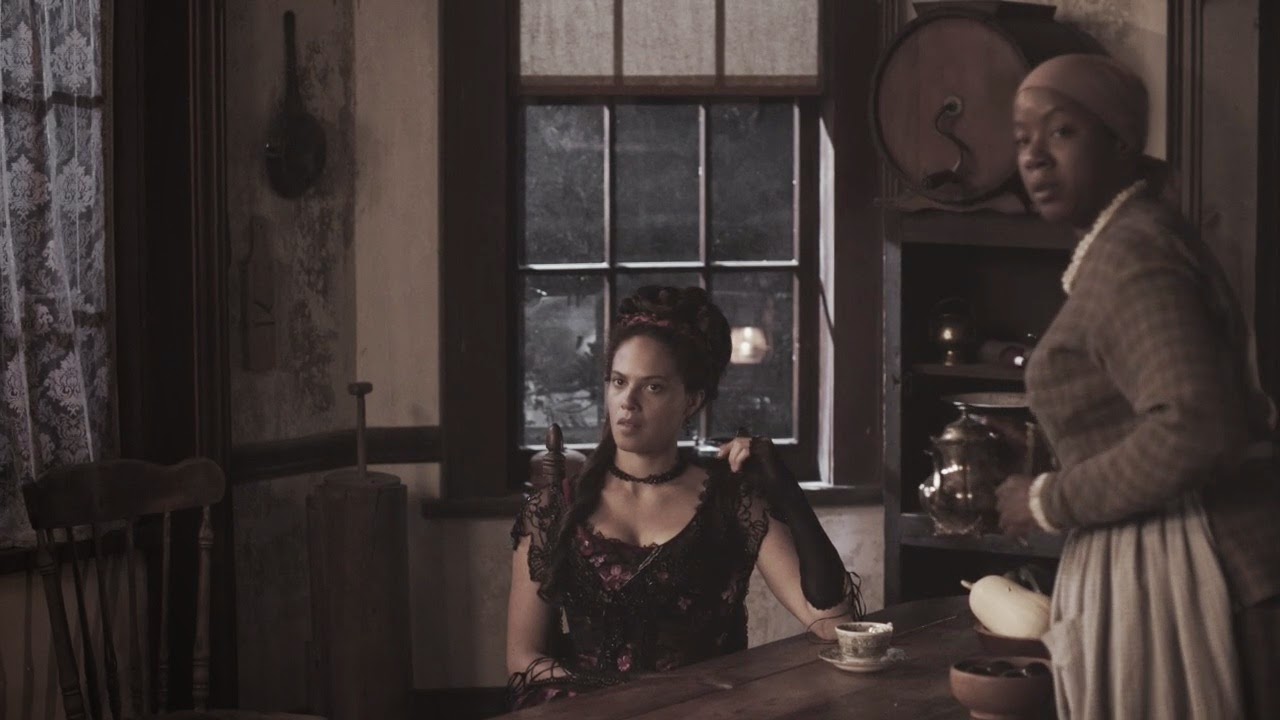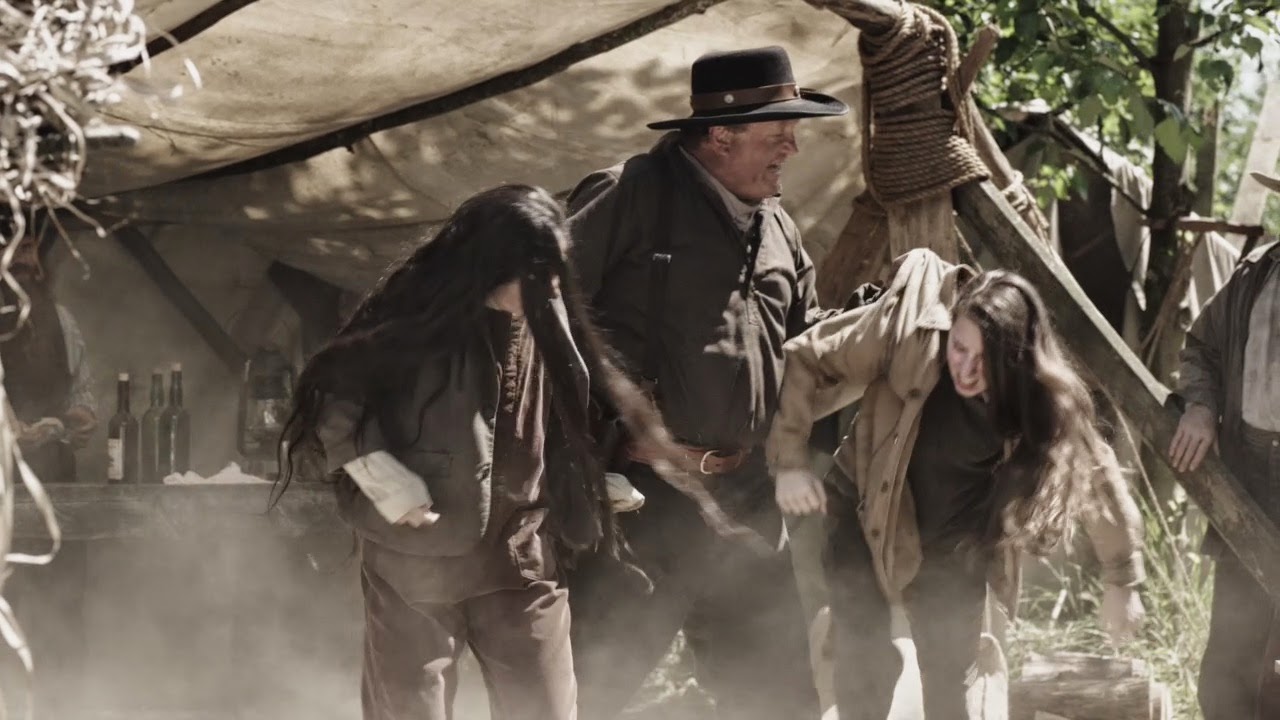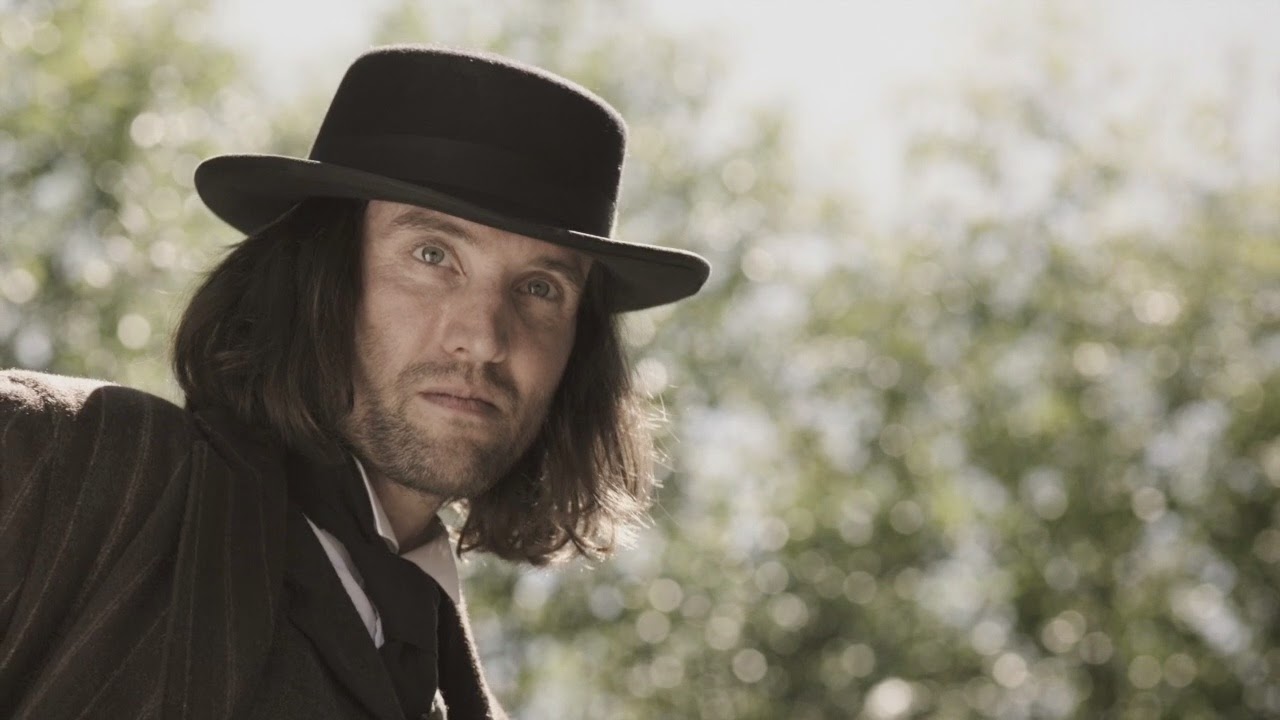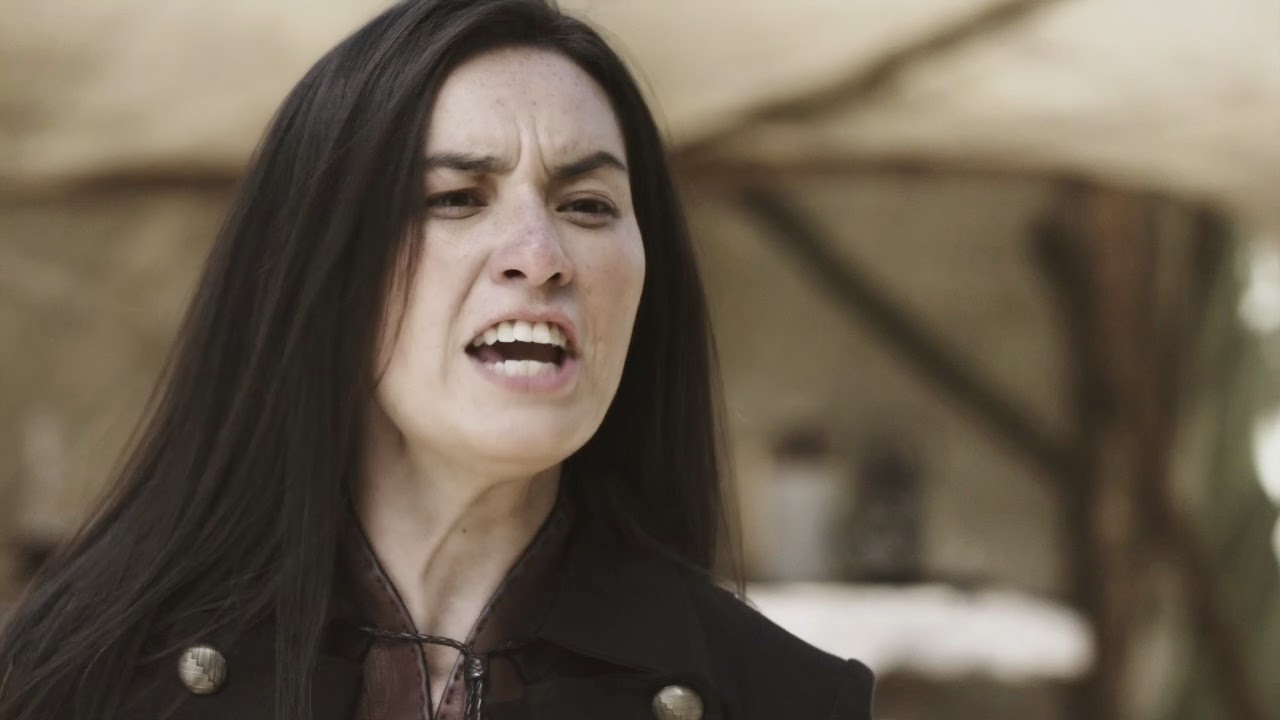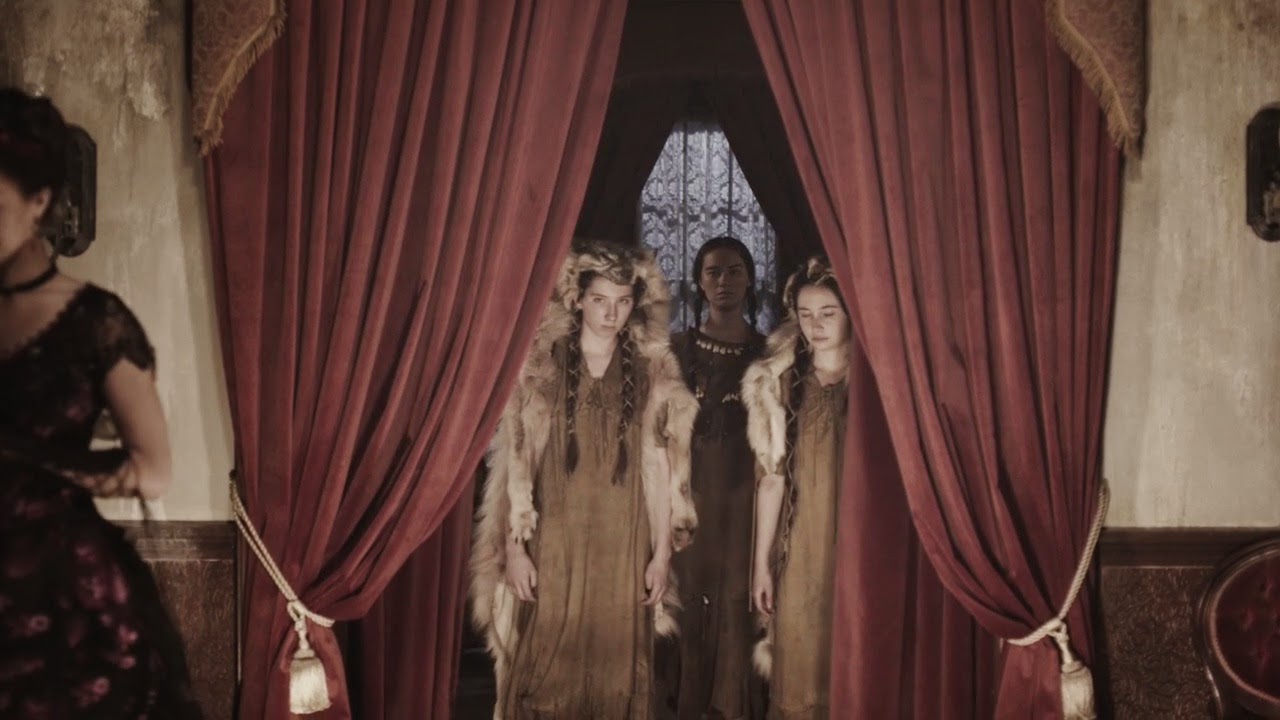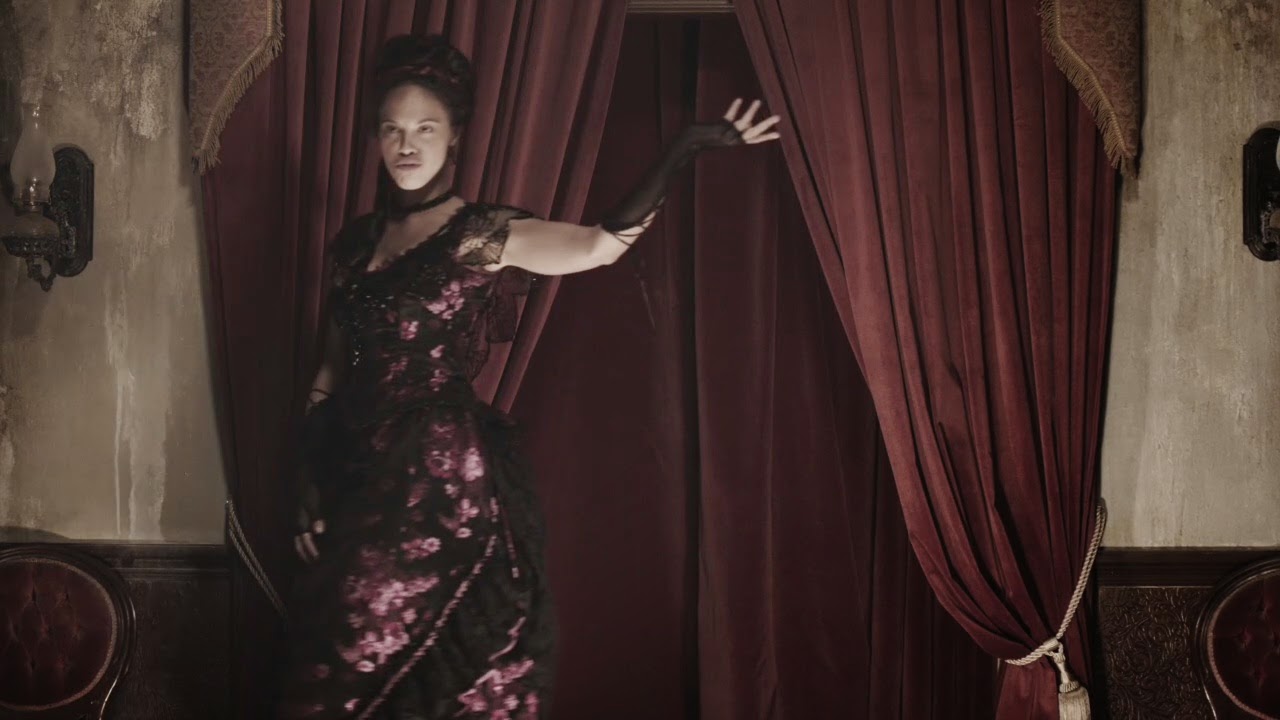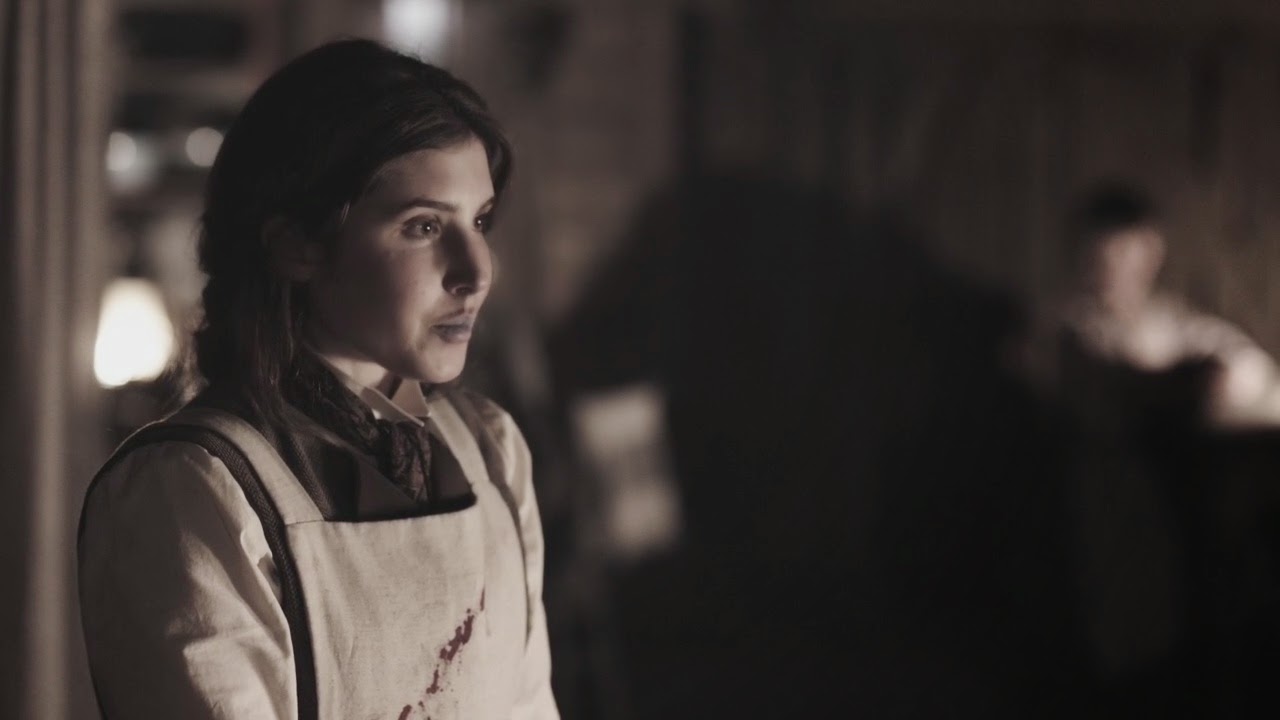Grumpy Cat's Worst Christmas Ever.
As this point you're probably wondering why the heck I bothered recording this shameless cash grab in the first place. Aren't I supposed to be some kind of critic with impeccable taste and a penchant for weird artistic depressing Canadian feminist Westerns?* Well, yeah, probably. But even critics like junk food, and this movie was aimed straight at my junk food brain area thing. It looked dumb and funny so I wanted to watch it. Again, spoiler alert: it's super dumb and super funny.
But the thing that I really noticed as I was watching the movie, which was, as predicted, absolutely terrible, was that it was actually completely aware of how terrible it was. And I don't mean that in the "Everyone involved in the making of this movie is ashamed of themselves" way. I literally mean that whole chunks of this film are devoted to making fun of this film.
Literally. Literally literally literally. I honestly couldn't really believe it, but as my roommate pointed out, it was almost hard to laugh at this movie because the movie made fun of itself before we could. It's like the whole thing was just a blatant cash grab and no one felt any need to hide that. The movie actually feels disdainful about itself. It was super weird.
Admittedly, no one in their right mind thought that this movie was going to be high art going into it. The film's got only the bare bones of a script, which follows a completely bonkers and terrible plot. The main character is Grumpy Cat, voiced by Aubrey Plaza, a lonely kitty who lives at the pet shop of a small, Southern California mall. Grumpy is too grumpy to get adopted, and has in fact been returned to the store twice already. She's resigned herself to being alone forever and is duly cynical about the world and existence. Also she's kind of a downer.
But one day in comes Chrystal (Megan Charpentier), a bright-eyed, super good hearted twelve year old who's just going through a rough time right now. Her parents are going through a divorce and she's being bullied at school. All her friends are adults who work at the mall because her mom also works at the mall and she goes there every day after school. Also she helps out at the pet shop because she finds animals nonthreatening and nonjudgmental.
Chrystal is upset about how lonely she is when a mysterious (slightly sketchy) mall Santa (Russell Peters) gives her a "magic wishing coin" and tells her to wish for a Christmas miracle. She wishes and then the Santa, who might be The Santa, disappears. And when she goes back to the pet shop, Chrystal finds that she can suddenly hear Grumpy Cat's thoughts! And they can communicate! She has a friend! Yay!
Yeah, like I said, I don't think anyone involved in this production had delusions that they were going to win an Emmy for this.
Anyway, the rest of the plot is pretty boilerplate. The petshop is going under because they're behind on their rent and the mean mall manager wants to throw them out and put in a coffeeshop. But Mr. Crabtree (David Lewis), who owns the shop, has a brilliant plan. He's managed to get some kind of super famous pedigree dog, and he's going to sell it for a million dollars. Then he'll use that money to save the pet shop.
Only two local lowlifes catch wind of this and decide that they'll steal the dog and then get Crabtree to pay ransom for it or just sell it themselves, and use that money to buy a tour bus so their band can finally go on tour.
Right.
Chrystal finds out about this when she accidentally witnesses them kidnapping the dog and then steals their keys so they can't get away, leaving her and Grumpy Cat trapped in the mall with the two thieves and the priceless dog at night. It's super low stakes (the guys have no weapons or violent inclinations and seem incredibly wussy), and deeply implausible, but it fills the time.
And there's a B plot in which Chrystal's mom, Tabby (Shauna Johannesen) is tentatively getting prepared to go on a date with Jesse (Casey Manderson), another mall employee. As Grumpy Cat literally says of it, "Blah blah blah not my line not my line." And she says that while appearing as a floating head and actually talking over the dialogue of the scene, so we as the audience don't even really know what happened.
So that's what technically happens in the movie. But it's hard to say that this film has a plot or a story or an emotional arc, because really what you watch for the two hours that this thing lasts is Aubrey Plaza, as Grumpy Cat, repeatedly breaking the fourth wall and telling you what a terrible movie this is, in increasingly blatant ways.
At one point she actually describes the only logical way the movie should end (with Chrystal just calmly taking the guys' keys, leaving the mall, riding her bike to the police station, telling them everything, and then the bad guys being arrested immediately), but comments that this would make for a really short movie and less revenue from commercials. Hence why the film is so bloated and illogical.
Later in the movie, Chrystal and Grumpy Cat attack the bad guys with paint guns, including a custom made cat-sized paintball machine gun. Which Grumpy Cat notes is not a thing made in real life, but clearly a movie prop. In this scene she argues with herself in a British accent. Just because.
And how could I forget the charming way the movie sends you off to a commercial break: "And now we break for shameless consumerism." Or the way she welcomes you back: "You're still watching this? WHY?"
It's like the movie was so bad it couldn't help but know how bad it was and figured it would get some fun out of it? I guess? I'm pretty stumped here, actually.
It's a movie where the cat drives a car at one point, only to stop when Chrystal points out that she can't reach the pedals. The implication is, of course, that she would have kept going as long as Chrystal could suspend her disbelief. And it's also a movie not afraid to mock its network. Grumpy makes several disparaging comments about Lifetime, from mocking the sappiness to gently reminding us that this is far from the most egregiously bad thing Lifetime has ever tried to show us.
But I still can't decide how I actually feel about the film. On the one hand, I did enjoy the crap out of it, which is basically the point of any movie. On the other hand, there's something wrong about a movie that makes fun of itself before I can. Can a movie be so bad it's good if it knows how bad it is? I really don't know.
Because, and this is the key thing, the reason we all enjoy "bad" movies so much isn't because they are poorly made. I mean, I love a bad movie as much as the rest of you, but there's a specific kind of bad movie that we typically enjoy. A "so bad it's good" movie is almost always a film that was made by people who genuinely loved and believed in it. Plan 9 from Outer Space is awful, but it's clearly trying to be high art, and that makes it hilarious. So too with Jesus Christ Vampire Hunter. The movie is painfully terrible, but you can tell that the people who made it thought they were making an important and deep satire of modern religion.
Grumpy Cat's Worst Christmas Ever isn't like that. It's super obviously not a movie anyone believed in, or a film that has any aspirations to be more than it is: a paycheck. And yet, for all that, I still like it. I don't think it's good, but I like it.
Actually it might be good in a really obtuse post-modernist philosophical way, but I'll let someone else tackle that one.
I guess the movie and my reaction to it can best be described by this actual quote from the film: "Some are born to greatness, some achieve greatness, and some watch Christmas movies starring cats. I think you know which you are."
Yeah, Grumpy Cat. I do know who I am. And so, for better or worse, do you.
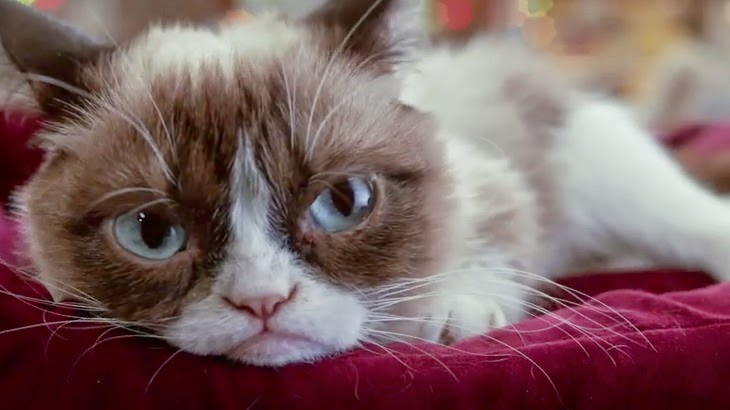 |
| Getting to stare at an adorable cat for two hours might also have made me like it more. |



